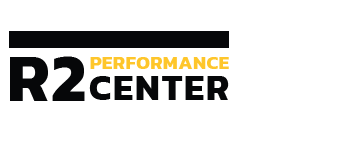

As a Soldier, you often train for the physical, tactical and technical elements of a performance but may neglect to train your mind to help you execute at the highest level. High performers execute consistently and perform to their full potential. Distractions like the weather, external pressure or self-doubt, or not feeling “in the zone” are common barriers to performing your best.
R2 Performance Centers offer a variety of training to help you perform consistently and to your full potential regardless of circumstances. Offerings include:
As a student, you need the right mindset and tools to excel, whether you are in AIT or pursuing a college degree, taking a medical course or preparing for EFMB. Learning a subject and excelling in a course has a lot to do with your study skills. APT teaches how to memorize material, remember what you read, increase test performance, streamline your note-taking and work smarter not harder.
Peak performance requires you to pay attention to the right place at the right time. You can focus on thoughts or sensations such as pain (internal), or take a broad view of your environment or focus on a target (external).
When you are qualifying your weapon, has your mind ever wandered to doubts about qualifying or to things like an argument, the noise around you, physical discomfort or the weather? You can learn to manage distractions and identify where to place your attention and then how to direct your brain in the moment so you can set yourself up for peak performance.
If you have ever struggled to approach a situation with confidence — such as giving a brief to leadership, qualifying your weapon, taking a course or passing the ACFT — Performance Experts can help you build your confidence and your team’s confidence. When you identify personal strengths, learn how high performers interpret failure and success, and correct ineffective thoughts, you can look at new challenges as opportunities instead of threats.
Different activities — such as the two-mile run versus the sprint, drag or carry — require different energy levels. When you understand what energy level an activity requires, you can prioritize what you can control and be more deliberate in how you use your energy, and how you can use breathing techniques to maintain composure and make the most of recovery opportunities.
You may set goals but then get sidetracked by other demands, or maybe you can’t sustain long-term motivation. Sometimes you may be in charge of assigning and overseeing tasks, but no one seems motivated to complete the job. You can learn research-based techniques to coach yourself and others to stay motivated long-term so you can meet goals.
Sometimes there may be something important you must do — such as applying a new skill, completing a new task, or learning a new element of the ACFT. In cases like these, imagery is a proven technique that helps build skill, accelerate learning and build muscle memory as you mentally rehearse.
Have you ever heard someone say something like, “I’m awful at school,” and it either prevents them from enrolling in classes or negatively affects their performance in a course?
Your belief about your ability to improve can either help you reach your full potential or cause you to plateau. You can learn to identify how your beliefs hold you back and how to get your beliefs to work for you rather than against you.
Mindfulness is a mental training technique focused on staying in the present moment, noticing thoughts and emotions and accepting them without judgment. Instead of judging an emotion, such as anxiety, as "bad" and trying to change it, notice the emotion, accept it and redirect your attention to the moment.
Research shows that practicing mindfulness consistently leads to better emotion regulation, mood, sleep, performance and focus.
